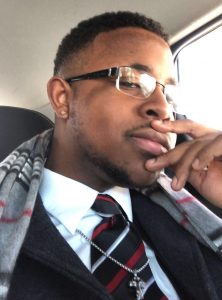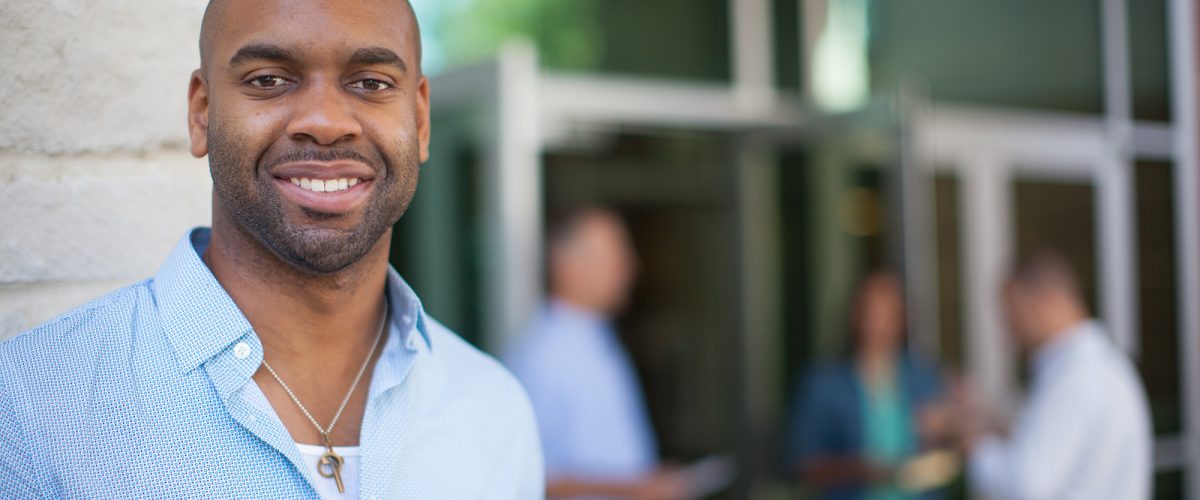When you hear the phrase, “the Black church,” what comes to mind? Who do you think about?
Maybe high-spirited songs and impassioned sermons fill your ears as you recall attending a Sunday service where the majority of people in the pews and in the pulpit were BIPOC.
Perhaps you think about Prathia Hall and Martin Luther King Jr. or a more contemporary minister like the local pastor in your area with a growing congregation.

Christian Ingram
All in all, regardless of the events or the individuals that entered your headspace, a plethora of places, people, perspectives, ideas and issues constitutes the Black church. It is certainly not a monolith.
However, the story of the diversity within the Black church is one of wonders and wounds alike. The struggle to establish special worship spaces both before and after enslavement must be put into conversation with the strength those special worship spaces later would provide for Blacks as they fought (and continue to fight) for civil rights and social justice.
While the Black church is not the sole source of Black people’s empowerment and optimism in an America that promotes deep ideals and presents shallow realities, it certainly has a hand in helping Black people improve their predicament. The Black church has provided Black people with a sense of community, a ground for cultivating leadership, a place to nurture gifts and talents, and a vehicle that advocates social upward mobility.
Yet, while the Black church deserves credit for the progress of Black people, it also deserves critique for the problems it perpetuates for the same people. While the Black church often is touted as an important institution in the Civil Rights movement as well as social justice advocacy, and rightfully so, the central concern was/is racism. Consequently, issues such as sexism and homophobia, which are still obstacles, remain either ignored or reinforced.
“Within the Black church, women and LGBTQ folks often are the marginalized among the marginalized.”
Within the Black church, women and LGBTQ folks often are the marginalized among the marginalized. Underappreciated and overworked, they undertake responsibilities while being denied respect. Their performance is praised but their person is problematized.
How unholy is it to insult someone’s identity while attempting to inspire their spirit? The so-called body of believers that should be building up our women and LGBTQ folks are some of the same “saints” who beat them down — and do it in the name of Jesus at that!
As it pertains to women and LGBTQ folks in the Black church, to demean them on the one hand and then depend upon them on the other hand is eerily similar to what the white enslavers did to the Black enslaved. The Black church has been and is complicit in the plight of its own people. How could the Black church become an organized oppressor when that was the very thing it sought to defeat?
Racism never was the only issue the Black church needed to address. Heteronormative patriarchy has proved and is proving to be a blind spot among many members of the family of faith. Since this infection largely has gone untreated, many women and LGBTQ folks are leaving the Black church, if not Christianity altogether. Consequently, the Black church is losing valuable limbs whether it notices it or not.
These disrespected disciples got tired of staying where they were starving.
In John 10:10, Jesus tells the disciples: “The thief comes only to steal and kill and destroy. I came that (the sheep) may have life, and have it abundantly.” If Jesus (the Good Shepherd) came that we (the sheep) might have life, then why is the Black church choking itself to death?
“What would Jesus say to the Black church if he visited a Sunday service and saw full pews and empty people?”
What would Jesus say to the Black church if he visited a Sunday service and saw full pews and empty people? What would Jesus say to pastors who prioritize statistics over stewardship?
How does the Black church make amends for killing off the same women and LGBTQ folks who thanklessly pumped life into it? A decent start would be taking a sincere posture of humility.
Arrogance facilitates erosion within the family of faith. In 1 Corinthians 12:12-27, Paul the Apostle explains the body of Christ is one body that consists of many members. One body part cannot dismiss or disregard another body part. Different body parts serve different functions. The body parts perceived as unimportant are essential. What happens to one body part affects other body parts. Here, Paul the Apostle advocates for equality and compassion among the body of believers in Corinth.
The Black church would be wise to emulate this message if it sincerely seeks to take accountability for its complicity in sexism and homophobia.
Straights cannot say to gays, “I have no need of you.” Men cannot say to women, “I have no need of you.” Cisgender folks cannot say to transgender folks, “I have no need of you.” The Black church needs women and LGBTQ folks. They are just as much God’s children as anyone else.
Moreover, Jesus asserts himself as a social justice warrior in Luke 4:18-19. In reading the scroll of Isaiah, Jesus makes it clear his mission is to the marginalized and his priority is the oppressed. Therefore, it is antithetical to our faith when we trash those whom Jesus treasured.
The Black church can begin taking accountability for its complicity in sexism and homophobia by pursuing repentance and seeking conversation with those whom it has hurt. Difficult discussions both between and among laity as well as clergy offer an opportunity for comprehension, healing, understanding and solidarity.
When you hear the phrase, “the Black church,” what comes to mind? Who do you think about? For me, the Black church is bigger than any denomination or doctrine. Differences in sexual orientation or gender identity do not disqualify you. The Black church consists of anyone of African descent who believes in Jesus Christ as Lord and Savior.
As a Black gay man raised in the Black church, I will be the first to tell you the “called out ones” are sometimes the ones who need to be called out. It is my hope and prayer that one day humanity will recognize instead of reject God’s divinity in our diversity and celebrate it rather than violate it.


